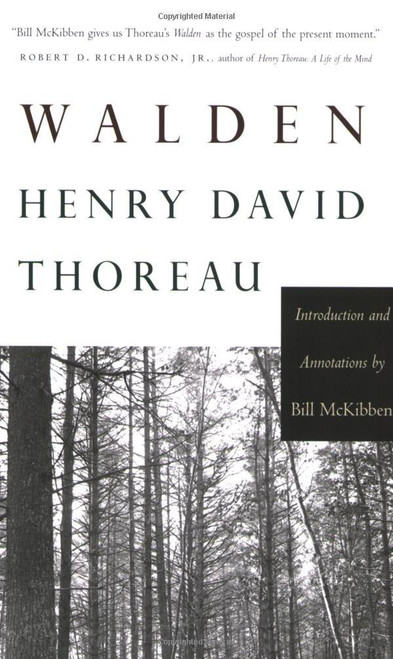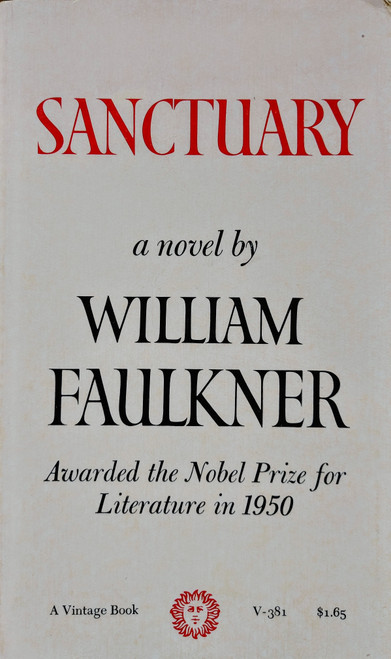Book Blurb
In 1845 Henry David Thoreau left his pencil-manufacturing business and began building a cabin on the shore of Walden Pond near Concord, Massachusetts. This lyrical yet practical-minded book is at once a record of the 26 months Thoreau spent in withdrawal from society—an account of the daily minutiae of building, planting, hunting, cooking, and, always, observing nature—and a declaration of independence from the oppressive mores of the world he left behind. Elegant, witty, and quietly searching, Walden remains the most persuasive American argument for simplicity of life clarity of conscience.
For the first time, the authoritative editions of works by major American novelists, poets, scholars, and essayists collected in the hardcover volumes of The Library of America are being published singly in a series of handsome paperback books. A distinguished writer has contributed an introduction for each volume, which also includes a chronology of the author's life and career, an essay on the text, and notes.
About the Author
Massachusetts native Henry David Thoreau (1817-1862) was a leading member of the American Transcendentalist movement, whose faith in nature was tested while Thoreau lived in a homemade hut at Walden Pond between 1845 and 1847. While there, Thoreau worked on the two books published in his lifetime: Walden and A Week on the Concord and Merrimack Rivers. The Maine Woods, Cape Cod, Excursions, and other works were published posthumously.






![Walden, a veritable treasury of American naturalism, teems with biting social observations about daily human life, not least among them:
"Our life is frittered away by detail....Simplify, simplify."
Henry David Thoreau built his small hut on the shore of Walden Pond in 1845. For the next two years he lived there as simply as possible, seeking zthe essential facts of lifey and learning to eliminate the unnecessary details--material and spiritual--that intrude upon human happiness. He described his experiences in Walden, using vivid, forceful prose that transforms his reflections on nature into richly evocative metaphors to live by. George Eliot's review of Walden singles out qualities that have attracted readers for generations, namely "a deep poetic sensibility," as well as Thoreau's own "refined [and] hardy mind." In a world obsessed with technology and luxury, Walden seems more relevant today than ever.
After being imprisoned for refusing to pay Concord's poll tax, Thoreau recounted his experience in an 1848 lecture, "The Rights and Duties of the Individual in Relation to Government." The speech, hardly noticed in Thoreau's lifetime, was later published as "Civil Disobedience." Today it is widely considered the single most important essay concerning the incumbent duties of American citizens and has inspired major civil movements around the world.
With an Introduction and Notes by Jonathan Levin Walden, a veritable treasury of American naturalism, teems with biting social observations about daily human life, not least among them:
"Our life is frittered away by detail....Simplify, simplify."
Henry David Thoreau built his small hut on the shore of Walden Pond in 1845. For the next two years he lived there as simply as possible, seeking zthe essential facts of lifey and learning to eliminate the unnecessary details--material and spiritual--that intrude upon human happiness. He described his experiences in Walden, using vivid, forceful prose that transforms his reflections on nature into richly evocative metaphors to live by. George Eliot's review of Walden singles out qualities that have attracted readers for generations, namely "a deep poetic sensibility," as well as Thoreau's own "refined [and] hardy mind." In a world obsessed with technology and luxury, Walden seems more relevant today than ever.
After being imprisoned for refusing to pay Concord's poll tax, Thoreau recounted his experience in an 1848 lecture, "The Rights and Duties of the Individual in Relation to Government." The speech, hardly noticed in Thoreau's lifetime, was later published as "Civil Disobedience." Today it is widely considered the single most important essay concerning the incumbent duties of American citizens and has inspired major civil movements around the world.
With an Introduction and Notes by Jonathan Levin](https://cdn11.bigcommerce.com/s-ezptpblrxu/images/stencil/500x659/products/1113/1811/WaldenCivilBarnesHardcover__88572.1660081611.jpg?c=2)

